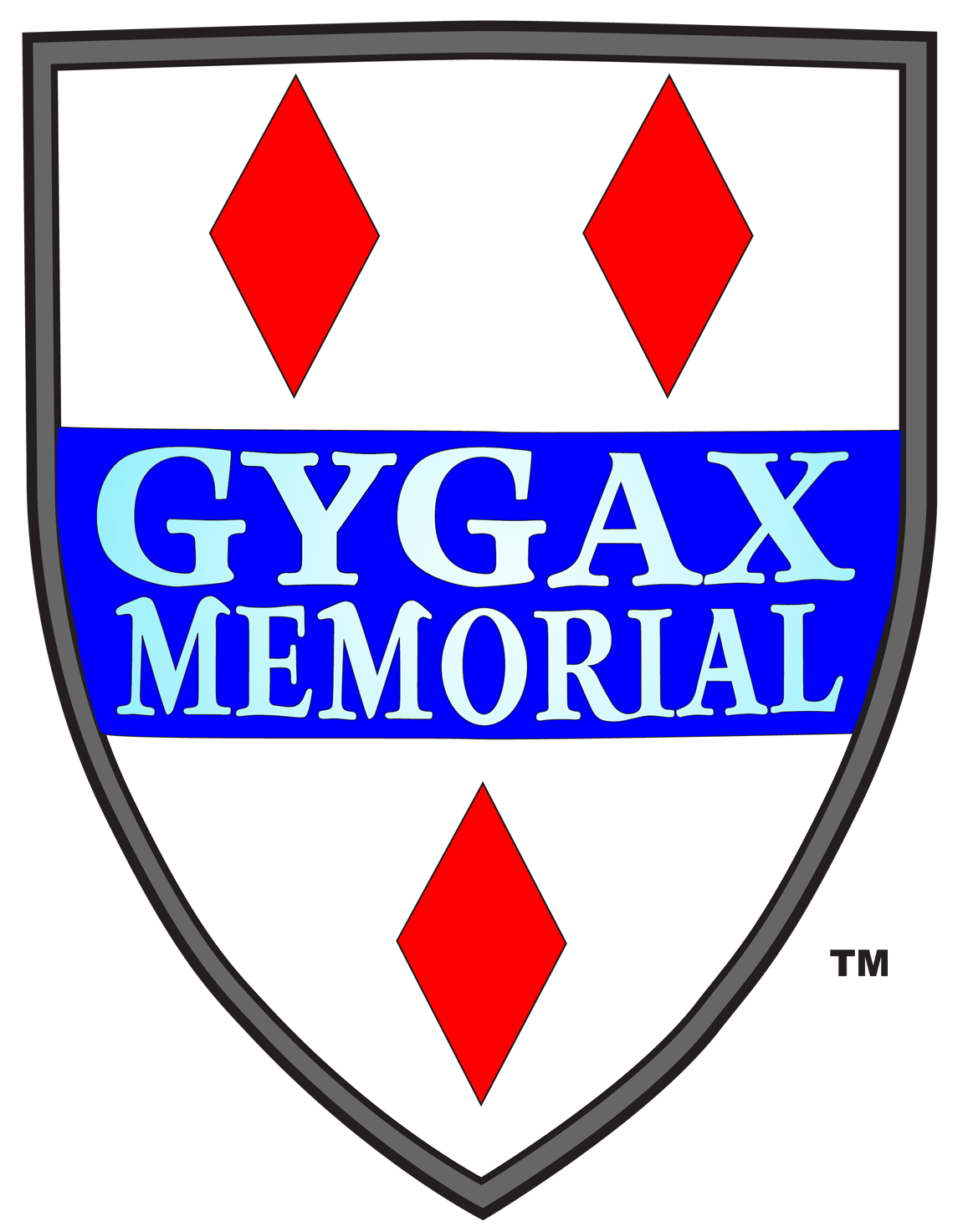Why A Memorial?
Gary Gygax (1938-2008) was a novelist, game designer, entrepreneur, and visionary who lived in Lake Geneva, Wisconsin and was the co-creator of the Dungeons & Dragons® game in 1974. The game, D&D® for short, was the first role-playing game ever and, as such, was only the seventh type table-top game created by humanity.
Can we say who created chess? Or dice? No, of course not, but we can name the person who co-created Dungeons & Dragons®, and he did it in our lifetime, in the United States, in the little town of Lake Geneva, Wisconsin. And it changed the world.
Cities and towns all over the world base their entire economy upon their most famous sons—authors among them. Certainly Lake Geneva is famous for Gary Gygax. Tens of millions of fans worldwide have read his works and played Dungeons & Dragons® and they flock to Lake Geneva yearly (in March!) to attend Gary Con. They know Lake Geneva is the birthplace of their beloved hobby and the hometown of their favorite fantasy author, and yet, the town has little to no recognition of this. At most fans can only drive past the house where he created D&D® or set some gaming dice upon an engraved stone at the Riviera fountain.
Establishing a memorial and embracing the legacy of Gary Gygax would make Lake Geneva a true Mecca for gamers. Having a memorial will bring the town revenue from hotel room tax and parking, year round, improving services, infrastructure, and quality of life for all residents. But to do that, the 50 million plus fans of D&D® and Gary Gygax need, not only a reason to visit, but a reason to park and walk around, stay overnight in hotels, purchase souvenirs, and patronize local bars and restaurants.
Can a game really change the world?
First Printing of Dungeons & Dragons® from 1974
Why is the creation of Dungeons & Dragons® important to humanity? Did it really change the world?
From the moment Dungeons & Dragons® created it spawned a legacy of imagination and creativity. It provided a cooperative environment where a group of players work together in a shared experience within a world realized by their immersion in it. It was not bounded by winning and losing, there were no limits to the reality of the environment, physical and social limitations did not apply.
Gary Gygax recognized the power of games to transcend age, gender, race, culture, language, religion, and class. Even as a child, that power drew him to games like chess, dice, tiles, and board-games. But all those games were based on competition. In millennia of game design, thousands of years of human history, no one had broken this paradigm of us vs. them, victory or defeat.
But for the first time in thousands of years, D&D® gives us something different. It brings together into a single game all these disparate elements: the cooperative, unstructured play of children, the concept of a referee as an adjudicator, a story-teller, and the probabilities of dice. Gary Gygax and his co-creator Dave Arneson codified it into D&D®. And together, they created this entirely new kind of table-top game – a game that doesn’t involve winning or losing. It’s a game whose only boundary is the imagination of everyone sitting around that table playing it. Where the shared experience became a reward everyone won.
And that is why Dungeons & Dragons® has become a truly global phenomenon.
An estimated 50 million people have played the game since it was created and it’s been translated into dozens of languages. The sales tells us that 14 million people play it currently, and 9 million people watch livestreams of other people playing it.
This phenomenon created an entire global fan-base for fantasy that wasn't seen before. Now there’s an audience for Lord of the Rings movies, Harry Potter books, and the Game of Thrones TV series and all the movies and shows those inspired too.
And even the way those stories are told comes from D&D®. In Game of Thrones, we accept that any character can die at any time. George R. R. Martin learned that main characters can be killed while playing role playing games. Anything is possible.
And, of course, its impact on the entire video game industry is obvious, but much more immediate than people realize. Less than one year after D&D® was released, computer programmers were already incorporating what they were doing in the table-top game into the first computer adventure games. So, today, practically every video game that has elements like classes, experience points, hit points, levels, player characters or avatars – those games owe their existence to D&D®. So, World of Warcraft, Never Winter Nights, Borderlands – all those games.
The game of D&D® unleashed a wave of creativity that manifests itself in our popular culture. Countless directors, writers, comedians, actors, show hosts, scientists, and even politicians, grew up with this game – and this game developed their imaginations.
So this simple idea of Dungeons & Dragons®, a game of cooperation instead of competition, was a humanity-changing event. It has become part of the fabric of our human experience and changed the world. And the main figure at the center of the phenomena of role-playing games is, of course, Gary Gygax.

